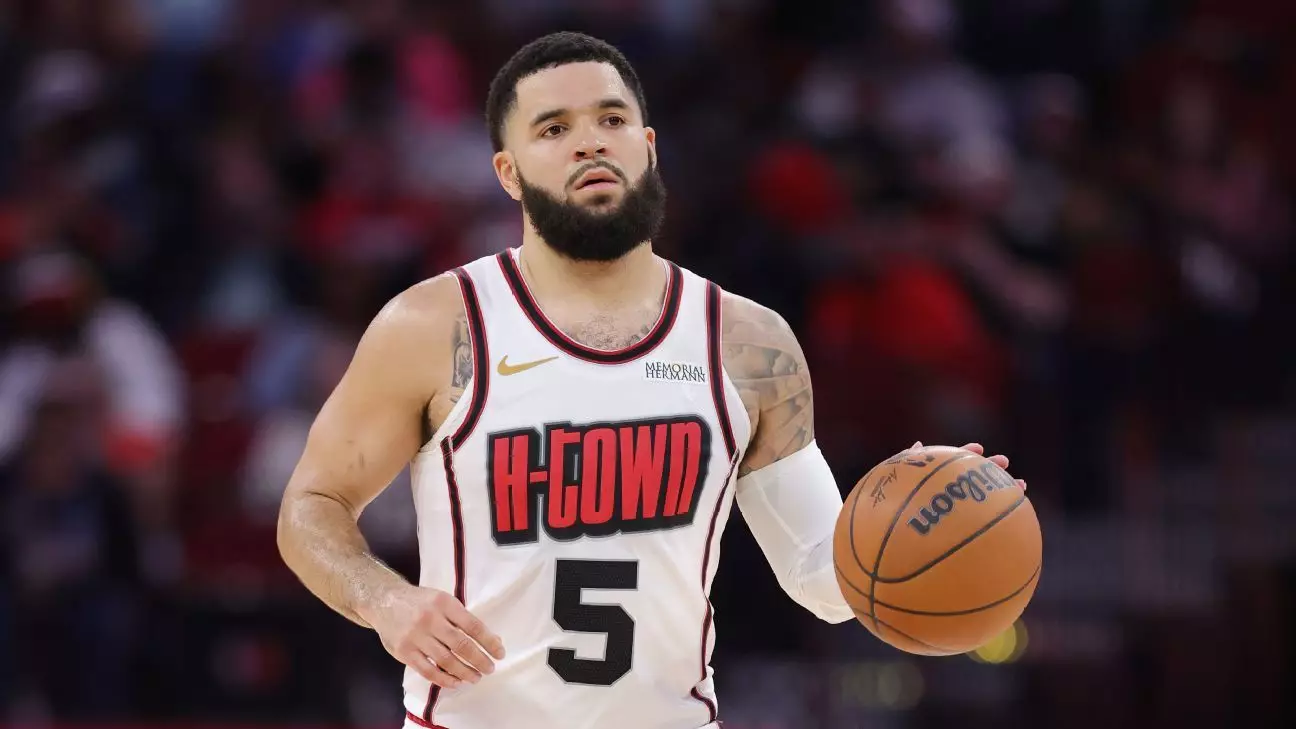In a recent NBA matchup between the Houston Rockets and the Portland Trail Blazers, emotions ran high and tempers flared, particularly for Rockets guard Fred VanVleet. During the final moments of the game, which ended in a 104-98 defeat for Houston, VanVleet found himself at the center of a controversy that would lead to a hefty fine and discussions concerning player conduct and officiating standards.
The incident unfolded dramatically when VanVleet was called for an offensive foul with just a few seconds left on the clock. His team was trailing by a slim margin of five points, and the frustration of the moment boiled over as he confronted the officials with pointed language and gestures. This was not just a fleeting moment of displeasure; it escalated to the point where VanVleet received a technical foul and was subsequently ejected from the game. Crew chief Courtney Kirkland later addressed the media, detailing how VanVleet’s tirade included not only verbal outbursts aimed at the officiating crew but also a physical gesture of nearing contact with one of the officials‘ faces.
The source of VanVleet’s frustration appears to originate from a preceding non-call related to a potential foul while attempting a three-pointer. Video reviews revealed that the defenders had indeed committed an infraction, which could have provided VanVleet with a chance to register crucial free throws that could have altered the game’s outcome. Kirkland noted that the oversight was significant—a two-shot foul could have created a pathway for the Rockets to tie the game. This context adds layers to VanVleet’s emotional response; players often feel that such moments can define a game, making the stakes even higher.
As a consequence of his actions, VanVleet was fined $50,000, marking a rubicon for emotional displays in professional sports, especially basketball, where the passion of the game often intertwines with the volatility of player reactions. VanVleet’s situation highlights both the demands on players to control their emotions in high-pressure situations and the repercussions of failing to do so. This incident serves as a reminder of the fine line players walk as they navigate the pressure of competition, personal performances, and officiating standards.
VanVleet’s Impact on the Rockets
Despite the controversy, Fred VanVleet has been a pivotal contributor to the Rockets’ performance. Averaging 14.5 points per game and leading the team in assists, his role is fundamental in steering the squad through challenging encounters. However, moments like these cast a shadow not only over individual player reputation but also on team morale and dynamics. As a ninth-year veteran, one would hope that VanVleet would set an example for younger players on handling adversity without crossing the line.
Ultimately, the incident between VanVleet and the officiating crew serves as an important illustration of the emotional intensity involved in professional sports. It pushes forward a dialogue regarding the need for players to harness their emotions even when frustrations are at their peak. In the fast-paced and often unforgiving environment of the NBA, maintaining composure could be as crucial as skillful play, underscoring the significance of both personal accountability and the role of referees in shaping game outcomes—both on the scoreboard and in the psyche of players.


Napsat komentář